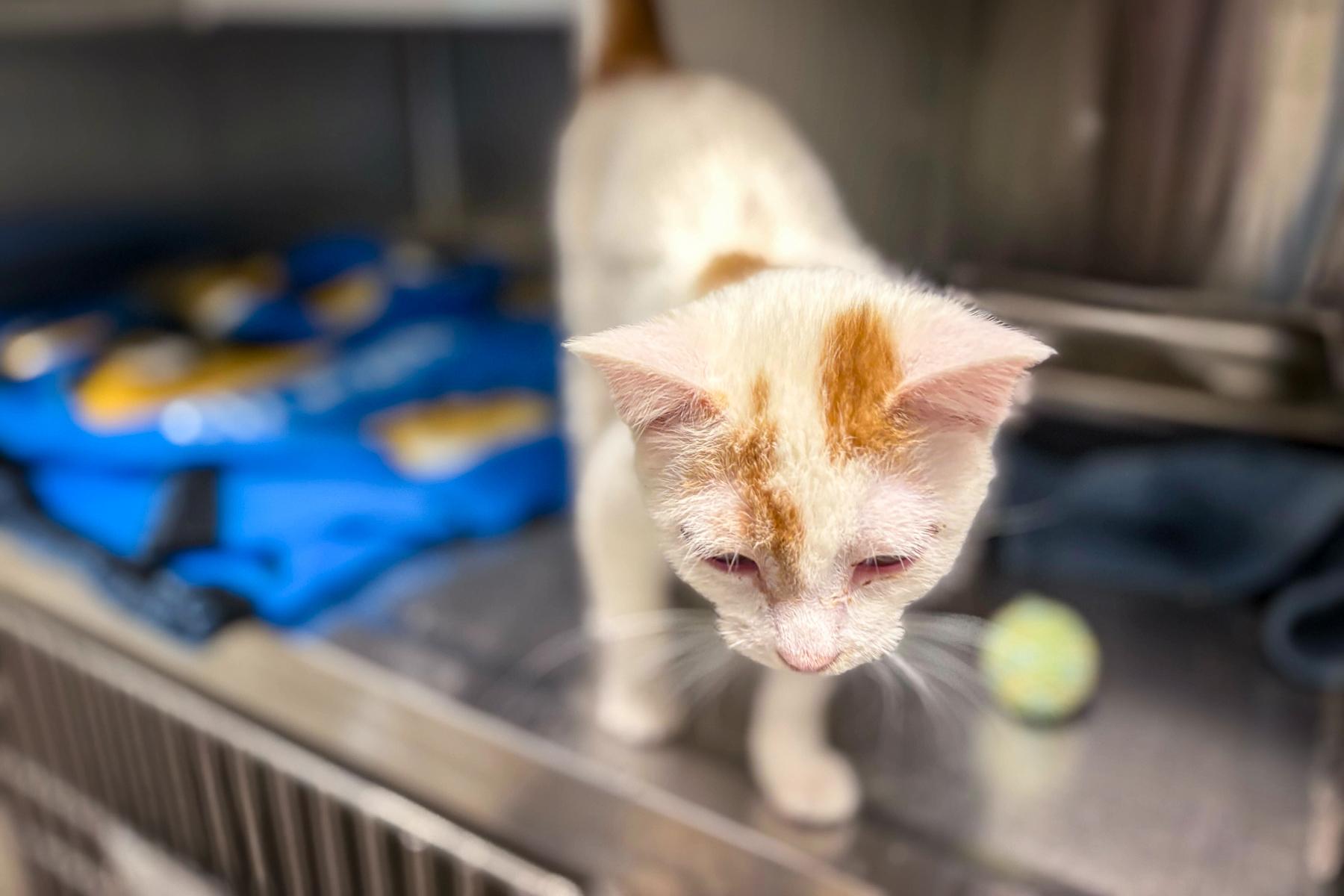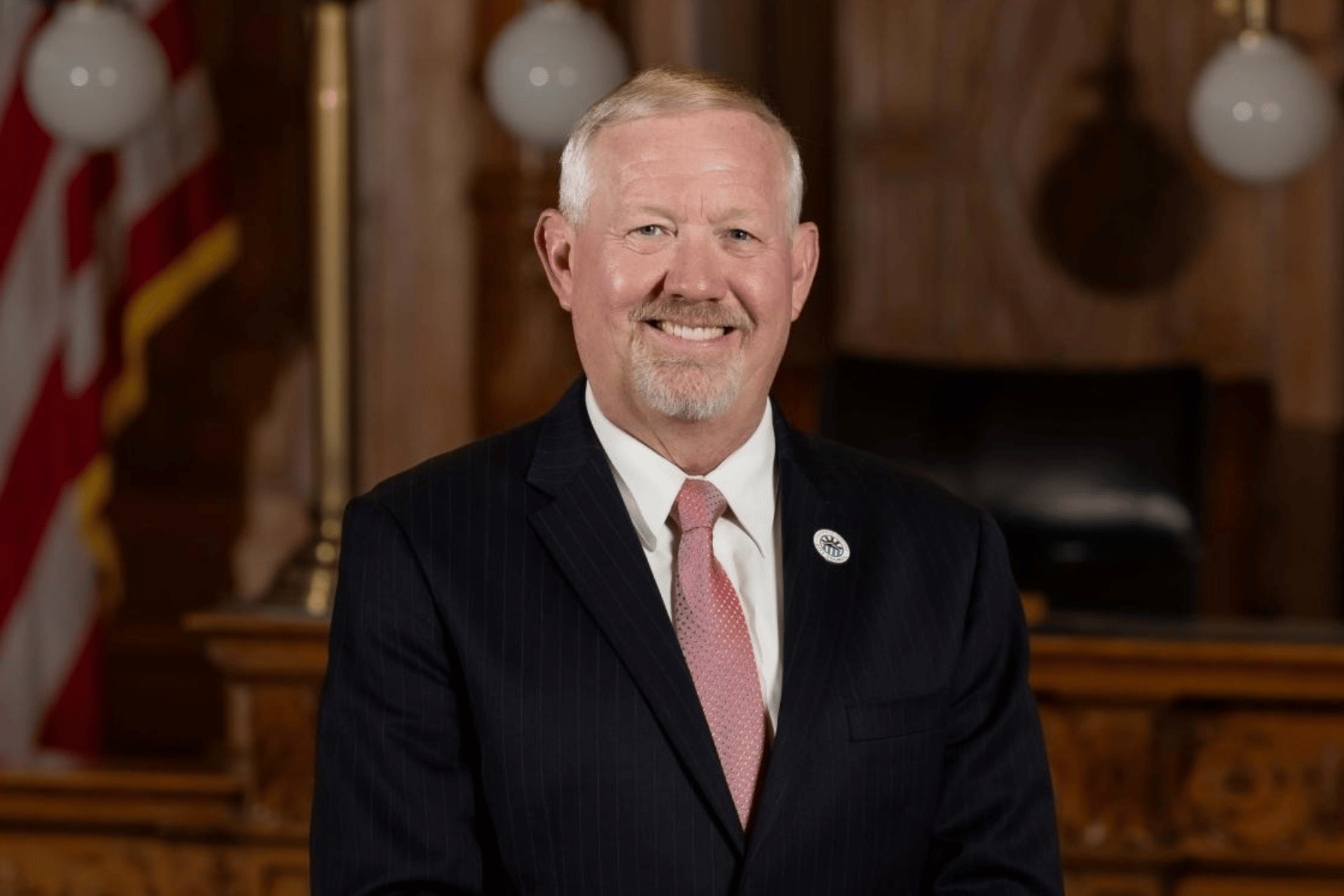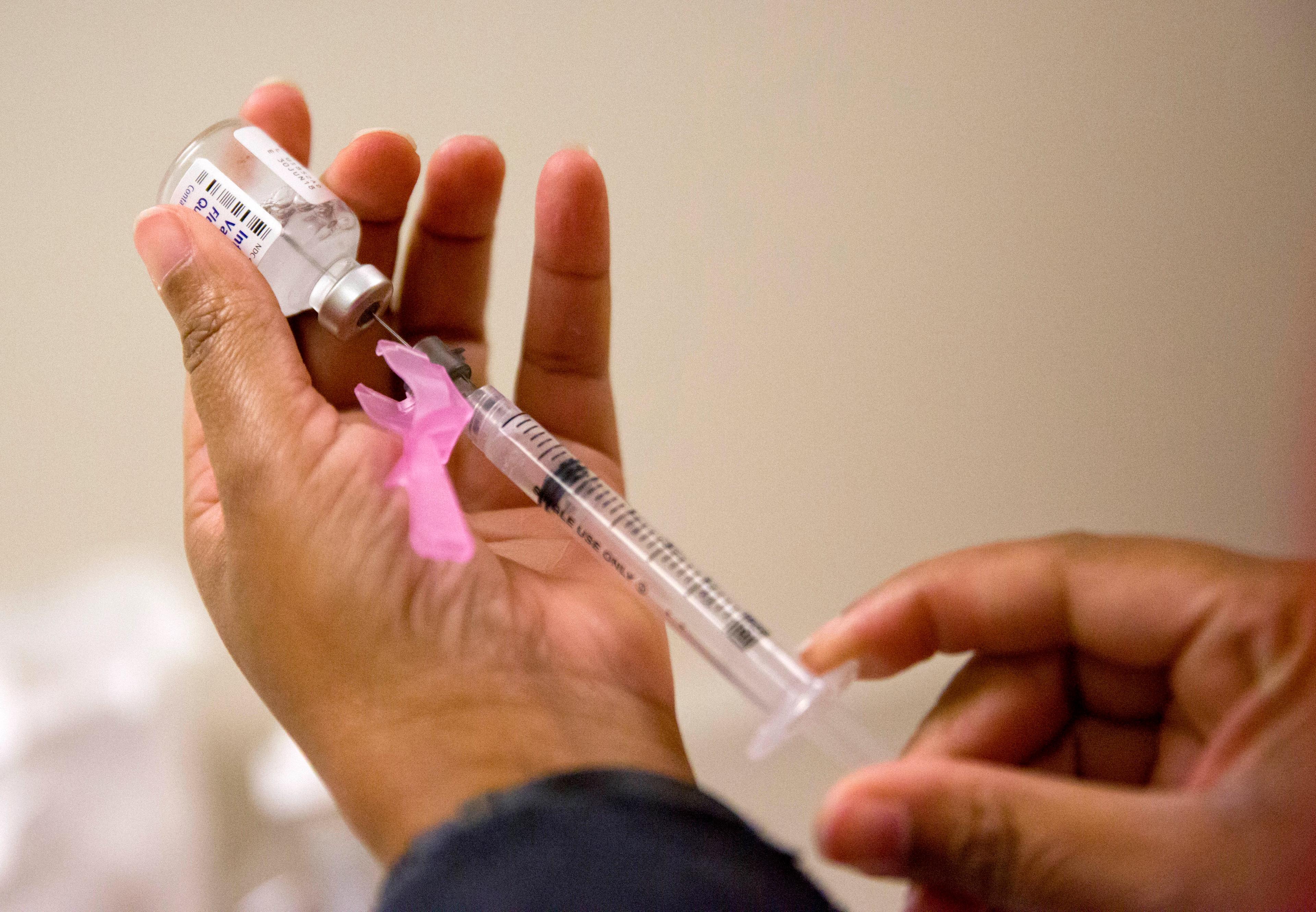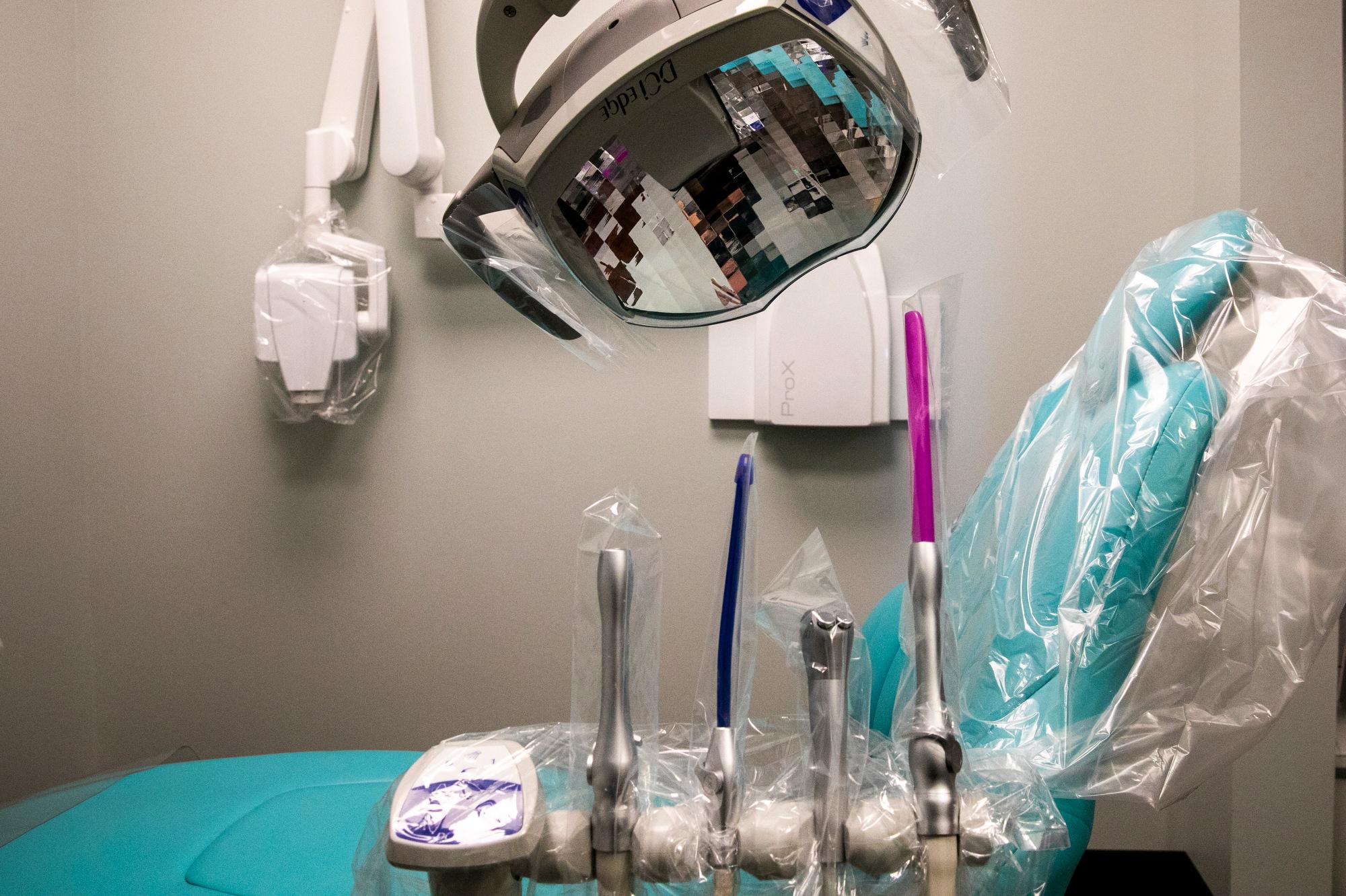
When Dr. Sage Pollack was finally able to see patients again at Dentistry of Colorado after the pandemic lockdown ended in April, she was shocked at how many cavities she found.
“I had to check myself and make sure I wasn’t overdiagnosing,” Pollack said.
She also saw more cases of gum disease, teeth grinding and jaw pain. It has apparently improved in the last six months, but there’s no doubt that pandemic stress is showing up in people’s mouths.
At the beginning of the pandemic, dentistry was considered to be one of the most high-risk professions. One of Gov. Jared Polis’ initial executive orders dealing with COVID-19 was to shut down dental offices for routine checkups and elective procedures. Since then, a survey from the American Dental Association points out that less than 1 percent of dentists have contracted the virus.
Why such a low number with all that spit flying around?
“We are trained from day one to treat everybody as potentially infectious to protect ourselves and protect our patients and our team,” Pollack said.
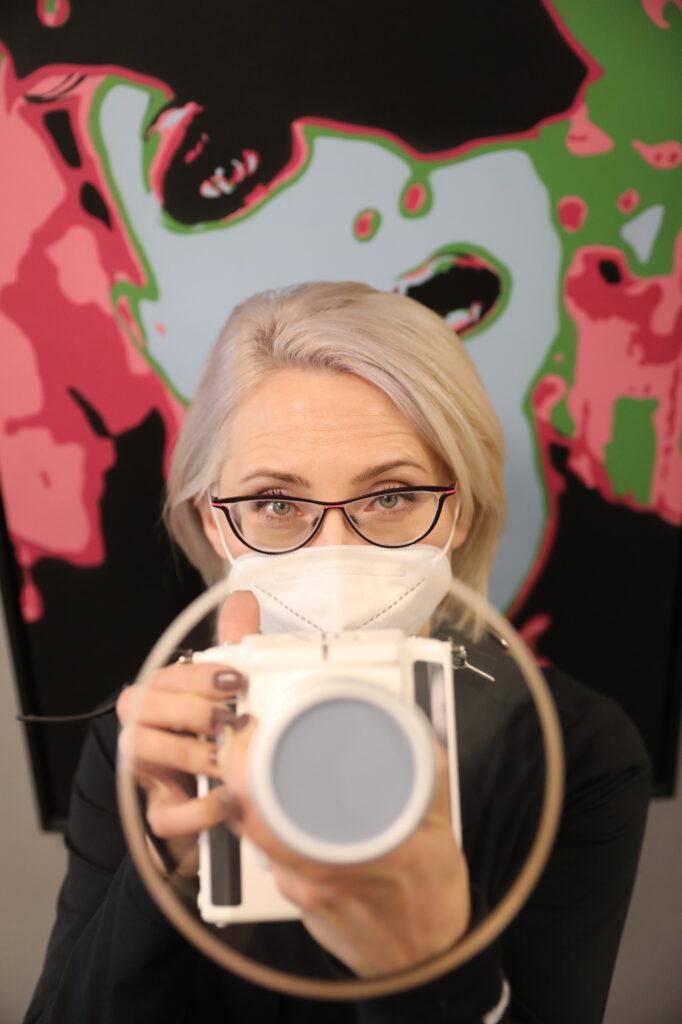
That doesn’t mean that nothing has changed. It’s now the norm for dentists to wear extra layers of scrubs and N-95 masks. Some offices have also switched to virtual waiting rooms. Patients will wait outside or in their car until the office is ready for them.
For Dr. Yuliya Rabinovich of Dental Muse in Castle Pines, medical-grade air purifiers help make her office safer. She agreed that dentists may have been a bit ahead of the curve when it came to protective wear.
“We just learn to trust our PPE,” Rabinovich said. “It saved us during the HIV pandemic, and so it's saving us during COVID. We're just so in tune with infection control, it's obviously working.”
Rabinovich caught a tough break when she opened her own practice in January of 2020.
“Can you imagine?!” she exclaimed with disbelief.
While she didn’t qualify for any COVID-19 relief loans because she couldn’t prove a loss of income (there was no income to begin with), the bank loan she used to get her business going carried her through the shutdown.
Things have picked up in recent months, she said, and now there are certainly enough dental problems to keep her busy. Headaches, migraines, cracked teeth, gum disease, jaw pain — all problems that can lead to larger health issues beyond your mouth.
“Patients used to say that dentists are just tooth mechanics. Something breaks, you come in, we'll fix it, and that's the end of the story,” Rabinovich said. “But your mouth is connected to your head and then your head is connected to the rest of your body.”
Improper chewing can lead to digestive problems, she said and grinding and clenching your teeth can lead to headaches and migraines.
“It was just an overall depression,” said Pollack while reflecting on her own patients’ increase in problems. “People had kind of given up on personal care.”
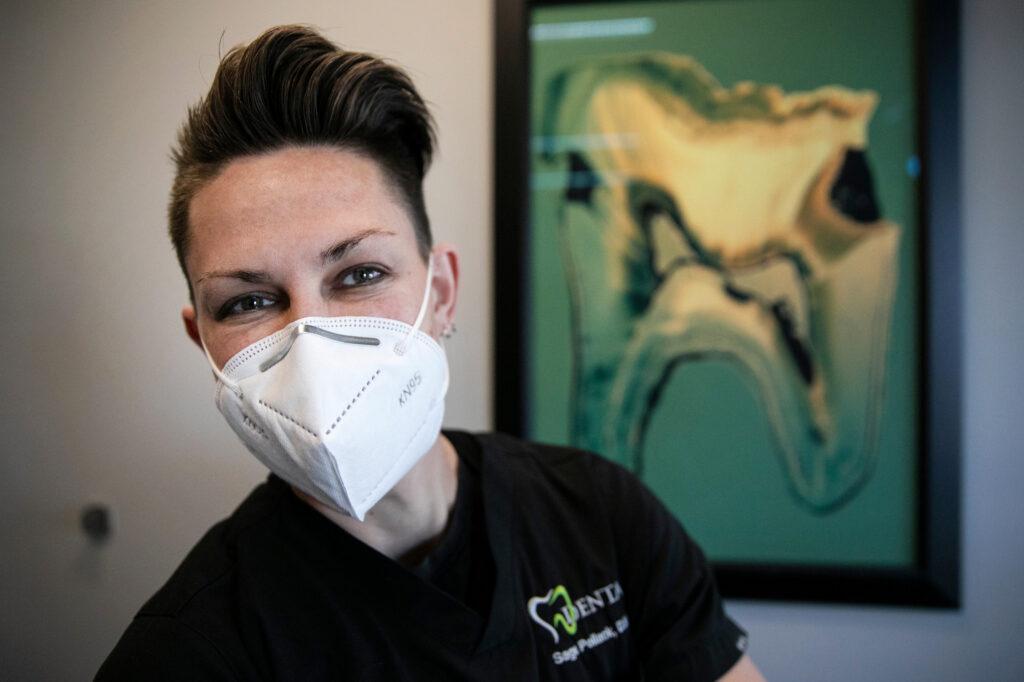
Pollack’s bottom line wasn’t hit as hard as Rabinovich’s. Her chain of dental offices in the metro did see a dip in patients though. She thinks it had a lot to do with the state’s unemployment numbers.
“I think after that initial opening period, why people weren't coming back is because they had lost their insurance,” she said. “That tends to keep people away. So, we actually have an in-office insurance plan that we offer at no charge to anybody that has lost their insurance due to COVID related matters.”
As far as vaccine eligibility goes, dentists are considered frontline health care providers. Pollack said it was a bit tricky for a while to get appointments but she’s been able to schedule shots for her and her staff.
The same goes for Rabinovich. Until then, she’ll continue poking around in people’s mouths. It was after all, a real calling for her.
“My mom was a dentist in Eastern Europe and my childhood smell is that of a very specific temporary dental material and, you know, not everyone gets warm and fuzzy from smelling a dental office, but I am one of those people.” she said with a laugh.



